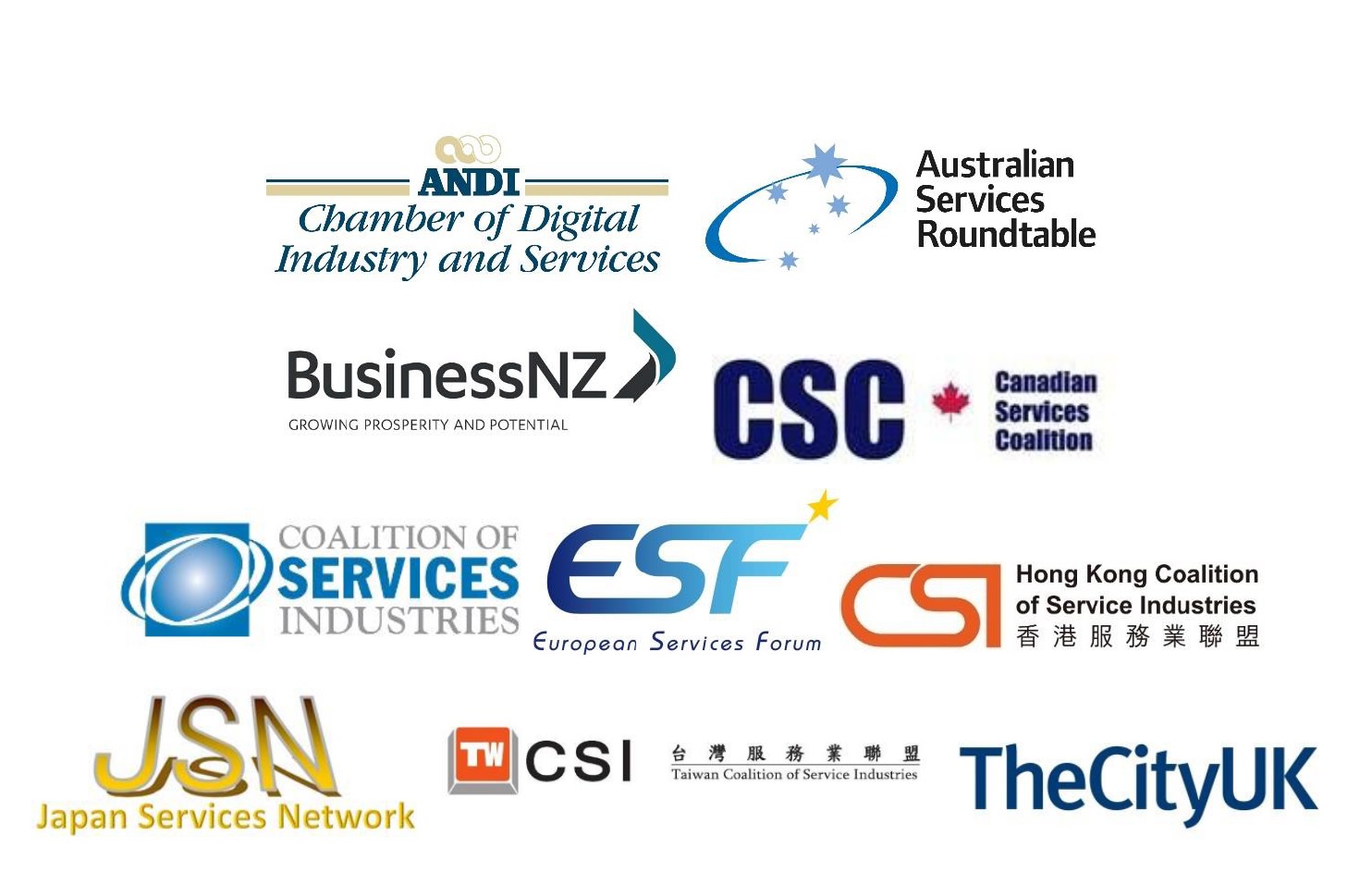You are browsing > Events >
Global Services Coalition Letter to WTO Ministers to Re-Double Efforts to Make Progress Toward a High Standard E-Commerce Framework2019-01-18

Global Services Coalition Letter to WTO Ministers to Re-Double Efforts to Make Progress Toward a High Standard E-Commerce Framework
January 18, 2019
The Global Services Coalition (GSC) welcomes the attention given by WTO Ministers to the interests of the services sector in Coalition members’ respective economies, particularly as regarding international trade and investment. The GSC commends Ministers of the 70 countries that signed the Joint Statement on E-Commerce at the Ministerial meetings in Buenos Aires in December 2017 and the intensive and productive exploratory discussions that have taken place in Geneva pursuant to that Joint Statement. The GSC believes that those discussions and the numerous proposals that WTO members have contributed are important progress and provide a positive foundation for renewed momentum to work toward an ambitious, high standard WTO e-commerce framework.
A strong rules-based multilateral system is critical to promoting trade in services and digitally enabled services and ensuring continued growth in services industries as well as manufacturing, agriculture and micro, small and medium sized enterprises (SMEs) in developed and developing countries alike. But that multilateral system must remain relevant to the commercial challenges facing business both large and small while fostering inclusive economic growth in developed and developing countries alike. For services, this means that the multilateral rules must be expanded to encompass and promote digital trade, including cross-border data flows, prohibitions on data localization, a permanent moratorium on e-commerce customs duties, non-discriminatory treatment of digital products, relevant services market access commitments in areas such as financial services, ICT and logistics, and trade facilitation.
All trade in goods and services – from the placing of an order to confirmation of delivery - now involves the electronic transfer of data. Data-transfer is today’s all-purpose means of business communication, spurring economic growth and innovation in all industries. GSC associations see with concern the appearance of certain forced data localization policies and practices, that may threaten to disrupt the continued growth and success of trade and commerce worldwide.
As our governments seek to help to provide more citizens with economic prosperity through new business opportunities and job creation, the expansion of the services sector and digital trade would be a welcomed boost to manufacturing and agriculture in economies around the globe. In agriculture, over 270 million small holder farmers in Latin America, Sub-Saharan Africa and South and Southeast Asia will require over US$200 billion in financing to grow their businesses. While conventional, formal financing and infrastructure may be insufficient to meet this demand, digital technologies and services are providing innovative new ways to provide greater inclusion and to try to meet this demand. Cloud based digital technologies and services are being used to widen the reach of health services to remote and underserved areas around the globe.
In taking on the task of forging a WTO e-commerce framework and crafting rules that facilitate the flow of trade in goods and services, there needs to be both trust among individuals that their personal data will be securely held and handled according to local privacy rules; and certainty for business that data protection regimes will be transparent, predictable, and as least trade-restrictive as possible. The Global Services Coalition recognizes that data-security and appropriate and effective protection of personal data are essential and must be assured through compliance with local privacy and security regulations. Any exceptions to the principles promoting cross-border data flow and avoiding forced localization should be limited to legitimate public policy objectives and be non-discriminatory and in full compliance with the provisions of the GATS.
We also recognize the focus on data must also be accompanied by appreciating the linkages between the digital economy and the physical movement of goods. While e-commerce opens up many new avenues for consumers, customs authorities must ensure border procedures support the movement of goods across borders as seamlessly as possible.
With a view to achieving the above objectives, the Global Services Coalition urges WTO Ministers to make the utmost effort to launch negotiations building on the WTO e-commerce discussions to date to make progress towards a high standard e-commerce framework by the time of the 12th WTO Ministerial Conference in Astana.

